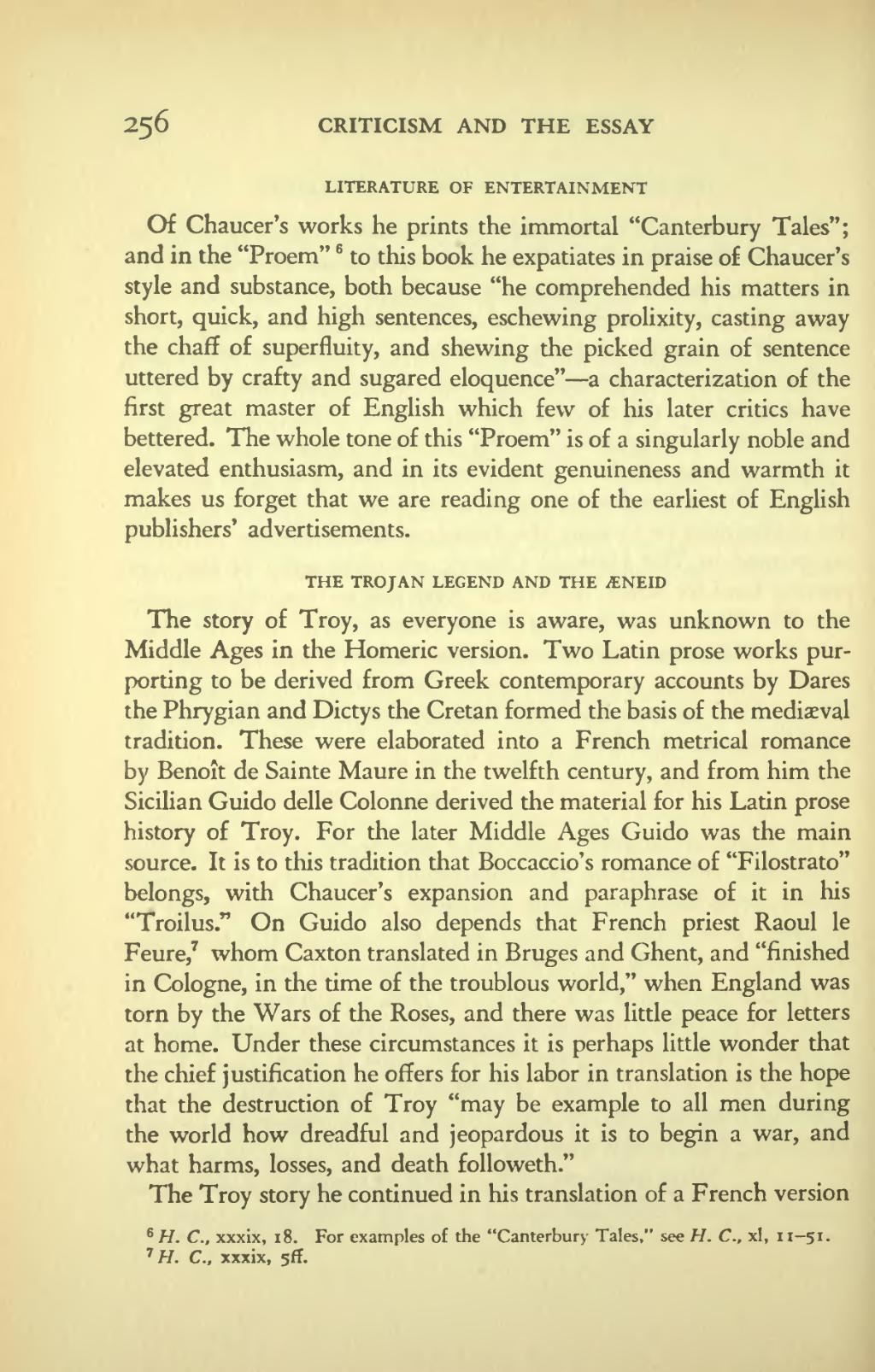LITERATURE OF ENTERTAINMENT
Of Chaucer's works he prints the immortal "Canterbury Tales"; and in the "Proem"[1] to this book he expatiates in praise of Chaucer's style and substance, both because "he comprehended his matters in short, quick, and high sentences, eschewing prolixity, casting away the chaff of superfluity, and shewing the picked grain of sentence uttered by crafty and sugared eloquence"—a characterization of the first great master of English which few of his later critics have bettered. The whole tone of this "Proem" is of a singularly noble and elevated enthusiasm, and in its evident genuineness and warmth it makes us forget that we are reading one of the earliest of English publishers' advertisements.
THE TROJAN LEGEND AND THE ÆNID
The story of Troy, as everyone is aware, was unknown to the Middle Ages in the Homeric version. Two Latin prose works purporting to be derived from Greek contemporary accounts by Dares the Phrygian and Dictys the Cretan formed the basis of the mediæval tradition. These were elaborated into a French metrical romance by Benoît de Sainte Maure in the twelfth century, and from him the Sicilian Guido delle Colonne derived the material for his Latin prose history of Troy. For the later Middle Ages Guido was the main source. It is to this tradition that Boccaccio's romance of "Filostrato" belongs, with Chaucer's expansion and paraphrase of it in his "Troilus." On Guido also depends that French priest Raoul le Feure,[2] whom Caxton translated in Bruges and Ghent, and "finished in Cologne, in the time of the troublous world," when England was torn by the Wars of the Roses, and there was little peace for letters at home. Under these circumstances it is perhaps little wonder that the chief justification he offers for his labor in translation is the hope that the destruction of Troy "may be example to all men during the world how dreadful and jeopardous it is to begin a war, and what harms, losses, and death followeth."
The Troy story he continued in his translation of a French version
- ↑ H. C., xxxix, 18. For examples of the "Canterbury Tales," see H. C., xl, 11-51.
- ↑ H. C., xxxix, 5ff.
